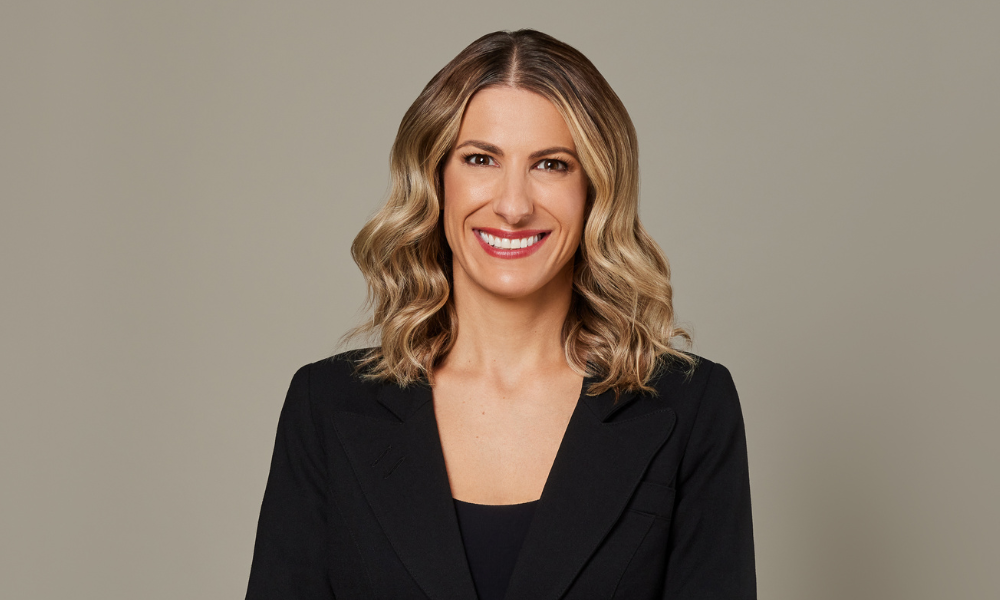Mandy Mail at GreenShield says inclusive mental health care isn’t optional – it’s what Canadian employees want and deserve

Across Canada, many organizations are quietly scaling back their diversity, equity, and inclusion (DEI) efforts. Dedicated DEI roles are being cut, budgets reallocated, and internal initiatives paused. The tone on inclusivity has shifted from urgency to uncertainty.
But while some companies may be cooling on DEI, many Canadian workers are expressing the opposite sentiment. In fact, when it comes to health and benefits, especially mental health care, inclusivity remains front and centre in the minds of employees. Inclusive care is not merely a talking point but a baseline expectation.
At GreenShield, inclusivity isn’t an afterthought. Equity-driven health services are fully integrated into GreenShield’s health and benefits options, allowing employers to close gaps in health inequities for their employees.
That real-world experience, paired with new national research, makes it clear: inclusive mental health care isn’t just good policy; it’s a competitive advantage.
GreenShield’s data, based on a national sample of 1,500 Canadians, shows that one in three would leave their current job for more comprehensive mental health benefits. That is a striking indication of just how central inclusive care has become to employee satisfaction, retention, and decision-making. This trend is being led by younger and marginalized workers, with 63 percent of 18- to 24-year-olds and 57 percent of 2SLGBTQI+ employees saying they would make the switch.
The same research found that more than 60 percent of Canadian employees say it’s important their therapist understands their culture, language, or religion. That figure rises to 71 percent for workers aged 18 to 24. That’s not a vague desire for representation; it’s a clear call for culturally appropriate care. When therapy reflects an individual’s lived experience, it’s not only more respectful; it’s more effective. Therapeutic alignment, or the sense of being understood by a healthcare provider, is one of the most consistent predictors of whether therapy actually helps.
This is where many employers face a growing disconnect. While DEI is being dialled down in boardrooms, employees are looking for it to show up in their everyday lives – in the support they receive, in the care they access, and in the values their employers demonstrate.
At GreenShield, we’ve made closing gaps in healthcare for underserved Canadians a top priority. We reinvest our excess earnings directly into expanding access to care, prioritizing communities that have long been underserved, including women, youth, racialized individuals, 2SLGBTQI+ people, and low-income Canadians. This includes working with partners such as Black Mental Health Canada (BMHC) and Noojimo Health, who serve Black and Indigenous populations with trauma-informed, culturally rooted care, to build inclusive solutions that are then integrated into GreenShield’s ecosystem.
Since launching our Women’s Mental Health program in 2021, GreenShield has been able to provide free, culturally appropriate care and resources to over 120,000 women – including Black women across Canada through partnerships with the likes of BMHC. Noojimo Health, as a trusted, Indigenous-owned partner, has relationships with 150 Indigenous communities, spanning rural and urban geographies in Canada.
These collaborations extend our impact and help shape and improve the services we offer. By co-creating programs and building relationships with trusted community leaders, we ensure our solutions are not only inclusive in principle but also seamlessly integrated into our practice. That’s how we turn DEI from a value proposition to a measured outcome.
This is no niche issue. More than two-thirds of employees say they have faced a mental health challenge in the past 12 months, with stress and anxiety topping the list across all age groups.
The implications for employers are clear: in a competitive labour market, and especially in times of economic stress, cutting corners on inclusive care is risky and shortsighted. Mental health benefits have become a key differentiator in recruitment and retention, and inclusive design is a core part of what today’s workforce is evaluating.
An employee’s ability to show up, perform, and remain with a company for the long haul is deeply influenced by whether they feel seen, supported, and understood. Inclusive benefits deliver on all three of these facets.
If we want to build healthier workplaces, we must stop seeing DEI as a nice-to-have initiative, or worse, a has-been initiative. It belongs squarely within the core of our benefits strategies where it can directly improve employee well-being, strengthen workplace culture, and drive business performance.
The demand is there, and the data is clear. When Canadians tell us they’re willing to leave a job for better mental health benefits, we don’t see that as a threat. We see it as a call to lead.
Mandy Mail is the Executive Vice President, Head of Marketing, Corporate affairs and GreenShield Cares. At GreenShield, Canada's only national non-profit health and benefits company, she seamlessly integrates management consulting fundamentals with innovative creativity, combining her passions for business, people, and social impact. Mandy was recognized as one of the 50 Best Executives in Canada by the Globe and Mail in 2025. She holds both a BBA and an MBA from York University.



